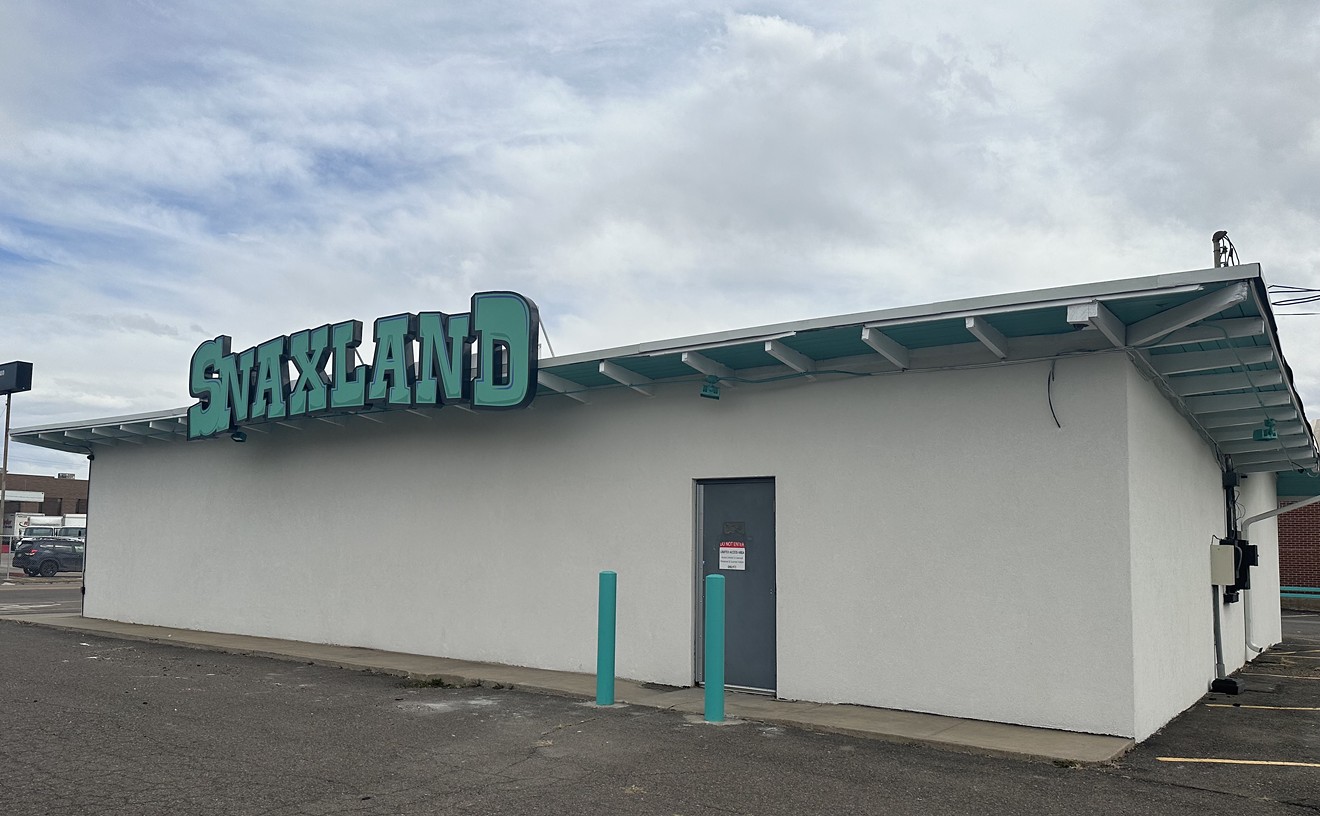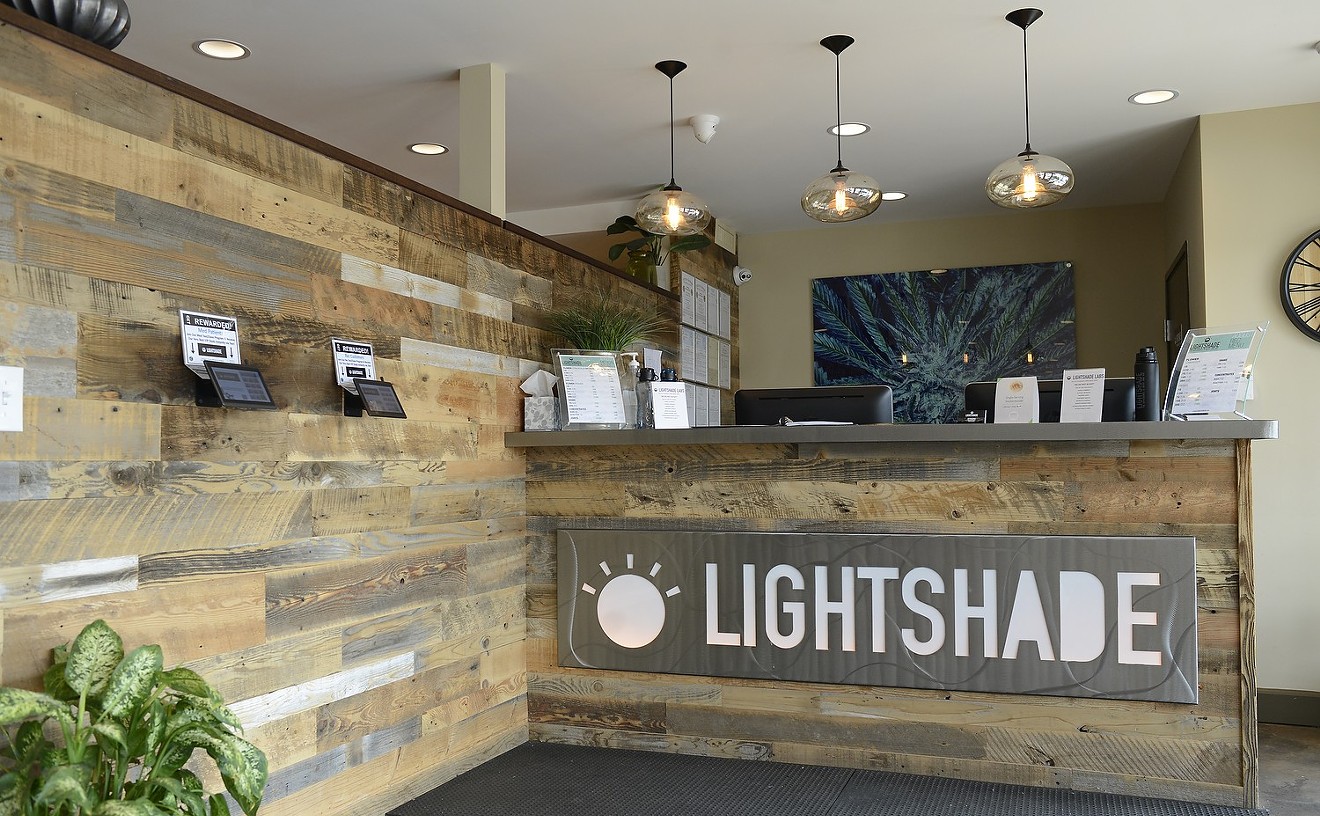A bill proposing restrictions to Colorado's new marijuana delivery program has failed, postponed unanimously by a legislative committee after the measure's sponsor requested it be pulled on May 6.
Introduced in March by Representative Marc Snyder, a Democrat from El Paso County, House Bill 1159 would have required a minimum number of days and hours of in-store operation for dispensaries applying for a delivery license. His proposal called for any dispensary with a delivery permit being open at least five days a week for five hours a day, and would have limited delivery sales to products that were available at the physical store, sold at the same price.
The bill underwent a number of amendments, including changes allowing pre-paid sales online for delivery — already okay under Colorado's current delivery program, but initially targeted by Snyder's bill — and Snyder himself proposed cutting the five-hour requirement for daily operation to three hours. But continued pushback from proponents of the original delivery program persuaded him to ask that the bill be pulled, citing "philosophical differences."
Before the vote, Snyder told the committee that his bill created "attempts to put some safeguards" on the delivery program, and voiced worries that he "didn't want shell stores" that operated as delivery-only models. There has been some resistance to the delivery framework created by the current law from some of Colorado's largest dispensary chains, including LivWell and the Green Solution, with opponents worried that Amazon-like warehouses could take advantage of language that doesn't specify that a delivery permit must be connected to an active, operating storefront.
"I feel a sense of obligation to folks who started in on this path in 2012 [and] began opening recreational stores in 2014," said Snyder, the former mayor of Manitou Springs. "I can tell you firsthand that we put an awful lot of burdens and an awful lot of requirements on these brick-and-mortar stores."
The Colorado Legislature legalized delivery in 2019, with recreational sales not allowed until 2021. The practice has already taken hold in Aurora, and marijuana business groups promoting more diverse ownership in Colorado's marijuana industry criticized Snyder's initial timing, arguing that his bill would block an opportunity to diversify marijuana business ownership in Colorado, which has been criticized for being overwhelmingly white.
Snyder admitted that racial tension played a role in his decision to ask the committee to postpone the bill, but said that his goal was never to stir up such an issue.
"I've got to be honest with you, given the somewhat racially charged atmosphere that we're all laboring under right now, that was a factor for me," he told the committee, adding that he "disagrees 100 percent" that his measure had discriminatory language or intention behind it.
Still, the Color of Cannabis, a group founded to create ownership opportunities for people of color in legal marijuana, opposed Snyder's bill, as did the Black Brown and Red Badged network, a coalition representing black and brown marijuana business owners.
“Small cannabis businesses and entrepreneurs who want to take advantage of the emerging delivery market should not be held to the legislative dictatorial whims of large corporate cannabis chains who already dominate the market,” BBRB executive director Hashim Coates said in a statement responding to the bill's postponement. “Delivery is a massive opportunity. Speaking up on the concerns raised by black businesses is not ‘creating racial division’; it is simply speaking up. Our concerns are 100 percent focused on the large corporate chain cannabis companies shutting out competition through legislation.”
The two major towns that have adopted delivery so far, Aurora and Denver, have attached social equity provisions to their marijuana delivery licensing structures, requiring the vast majority of permit holders to qualify under a state definition created to ensure that communities harmed by the drug war can profit from legal marijuana.
Twelve businesses in Aurora and Denver are registered for recreational delivery with the state Marijuana Enforcement Division, while Boulder and Longmont, which allow medical delivery but not recreational, have eight registered delivery licensees between them. While Aurora's local licensing process is under way, however, Denver's has yet to start.
Snyder says he'd like to see his proposed changes to the marijuana delivery program considered during 2021 rulemaking sessions with the MED.
[
{
"name": "Air - MediumRectangle - Inline Content - Mobile Display Size",
"component": "12017618",
"insertPoint": "2",
"requiredCountToDisplay": "2"
},{
"name": "Editor Picks",
"component": "17242653",
"insertPoint": "4",
"requiredCountToDisplay": "1"
},{
"name": "Inline Links",
"component": "18838239",
"insertPoint": "8th",
"startingPoint": 8,
"requiredCountToDisplay": "7",
"maxInsertions": 25
},{
"name": "Air - MediumRectangle - Combo - Inline Content",
"component": "17261320",
"insertPoint": "8th",
"startingPoint": 8,
"requiredCountToDisplay": "7",
"maxInsertions": 25
},{
"name": "Inline Links",
"component": "18838239",
"insertPoint": "8th",
"startingPoint": 12,
"requiredCountToDisplay": "11",
"maxInsertions": 25
},{
"name": "Air - Leaderboard Tower - Combo - Inline Content",
"component": "17261321",
"insertPoint": "8th",
"startingPoint": 12,
"requiredCountToDisplay": "11",
"maxInsertions": 25
}
]












